AI Customer Service
Deliver Exceptional Customer Experiences with AiseraGPT & Generative AI

Streamline your Customer Support with AiseraGPT
Aisera’s AI Customer Service brings increased customer satisfaction and decreased support costs to your organization by integrating a chatbot and an action bot to offer unmatched natural language conversations and automated issue resolutions. The Aisera’s Enterprise AI Copilot, an essential AI tool along with AiseraGPT, utilizes enterprise LLMs to enable personalized, multilingual conversations across digital and voice channels while automating complex requests using Conversational AI and Automation.
With AI Customer Service chatbots, organizations can reduce response times, eliminate human intervention, and supercharge agent productivity, thereby elevating customer retention rates, enhancing loyalty, and driving revenue growth.
Trusted by Leading Companies









Featured Capabilities of AI in Customer Service
Generative AI can increase productivity and efficiency by reducing the load on customer service teams. By taking on mundane tasks, such as simple question-and-answer scenarios, customer service teams can focus more on value-adding tasks and develop deeper relationships with their customers. Leveraging AI in customer service, capable systems interact with customers on behalf of a company. The AI system is programmed to respond to customer queries and requests, and it can simulate a human conversation by using natural language processing.
A customer service chatbot uses artificial intelligence (AI), machine learning, and natural language understanding (NLU) to mimic human speech. Businesses have been steadily adopting chatbots and incorporating them into their service models to answer customer questions and automate routine tasks.
One of the most common uses of Generative AI for customer support is chatbots. Businesses already use chatbots of varying complexity to handle routine questions such as delivery dates, balance owed, order status, or anything else derived from internal systems.
Using advanced technologies in a conversational AI platform, NLU search, unsupervised NLP, Conversational Automation, machine learning, and knowledge management based on FAQs, Aisera’s AI-powered customer Support solution auto-resolves customer requests instantly to improve customer service experience dramatically.
That’s where AI customer care bots come in. While AI for customer service can’t replace human agents, they help speed up the customer support experience by answering easy customer questions and collecting important information that support agents need to solve a case quickly. Enterprise chatbots help companies deliver superior customer service and increase customer satisfaction.
Generative AI for GPT-like Experiences
Enable GPT-like interactions in 100+ languages, using natural language as the new user interface. Facilitate human-like conversations with capabilities like intent understanding, context management and awareness, disambiguation, and exception handling.

Generative AI-Powered Search Across the Enterprise
Respond to requests by generating responses and summaries using RAG (Retrieval Augmented Generation), which searches through various customer data sources and business apps in real time. Extract information from knowledge bases, tickets, conversations, and more to enable on-the-fly data retrieval with Aisera’s Enterprise AI search capabilities, while including links for more details.
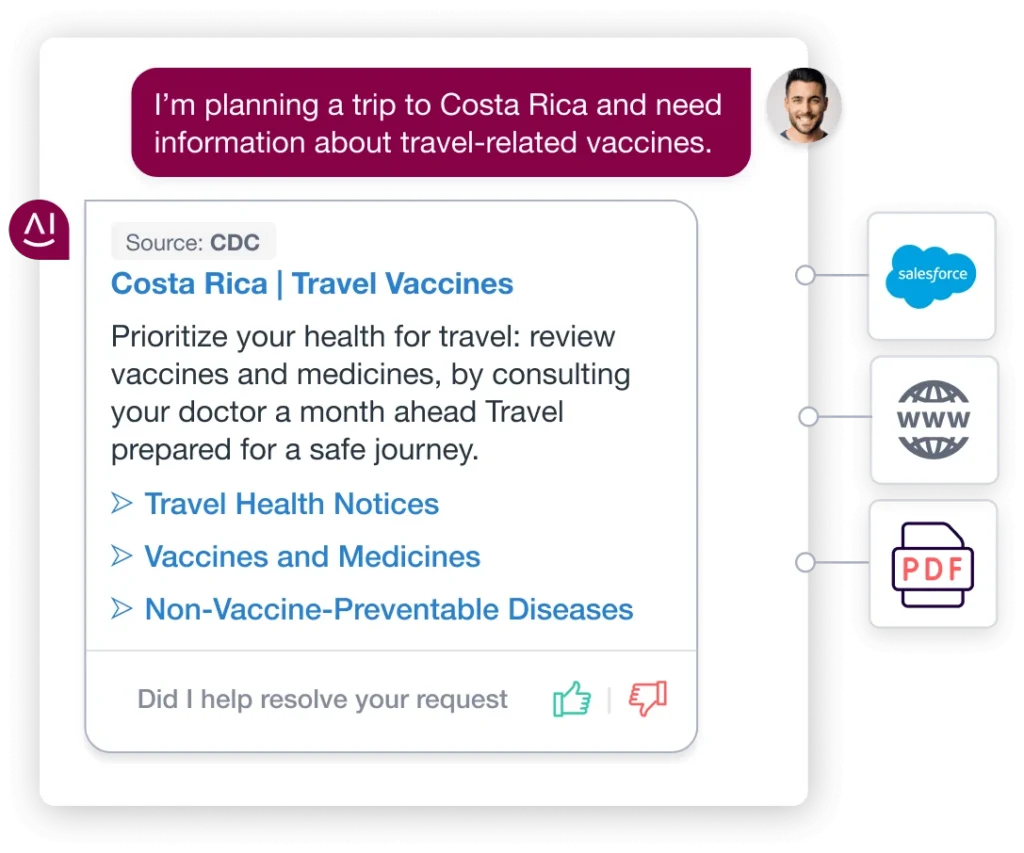
Unsupervised AI & Human-in-the-Loop Reinforcement Learning
Boost customer service experiences with unsupervised AI that learns from each interaction to provide accurate and consistent responses. AiseraGPT employs enterprise LLM in areas like High-Tech, Retail, Financial Services, Pharma, healthcare, and more, adapting to your environment for contextual and relevant responses.
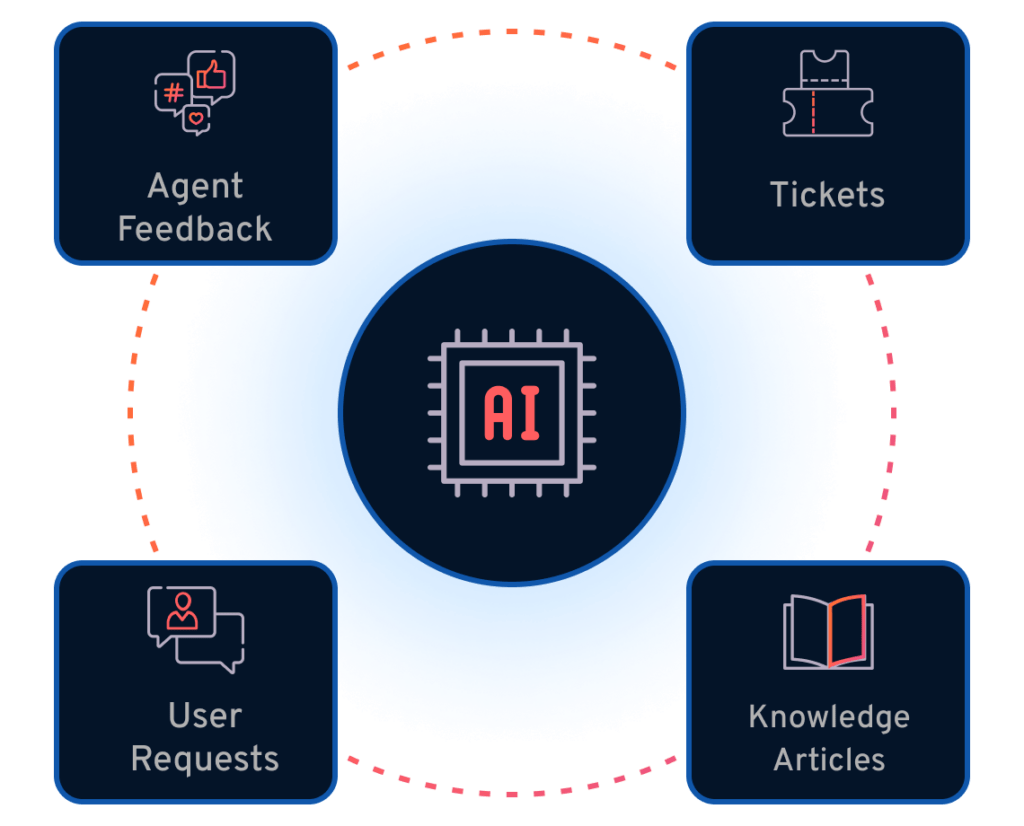
LLM Powered AI Workflow Library
Harness the power of 3,000+ pre-built and third-party LLM-powered AI workflows to auto-resolve incoming requests. The AI workflows can be triggered conversationally through system events, webhooks, schedules, and event data posted from other systems.
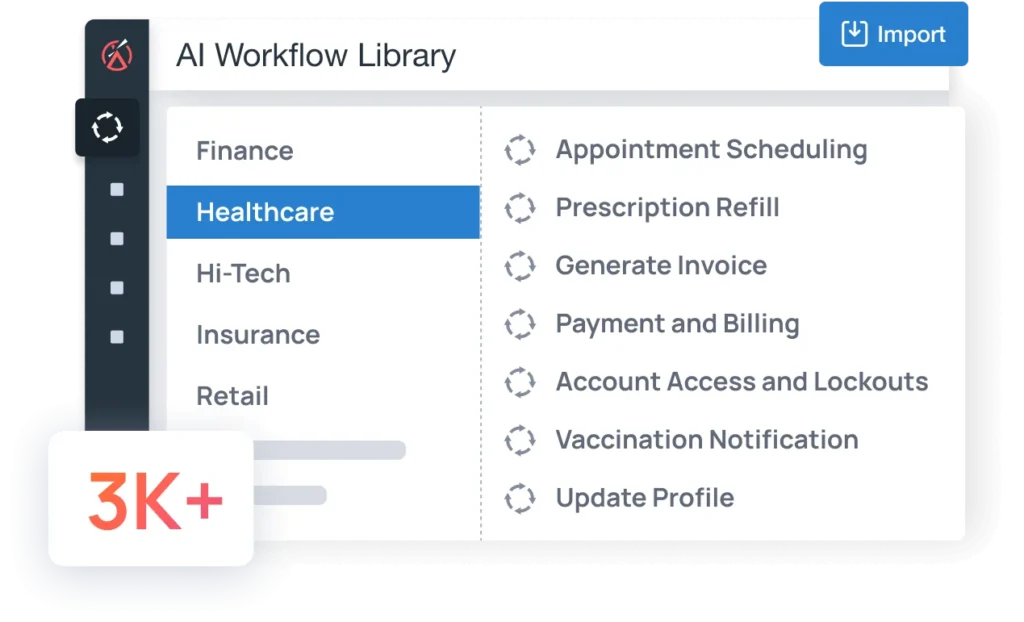
Rich, Pre-Built Integrations
Seamlessly integrate with 500+ enterprise applications like Salesforce, Zendesk, and more, optimizing the automation of complex customer requests and empowering you to bridge gaps in knowledge, automation, and conversational understanding effortlessly. The extensive integration system allows users to self-assist, elevating customer satisfaction.
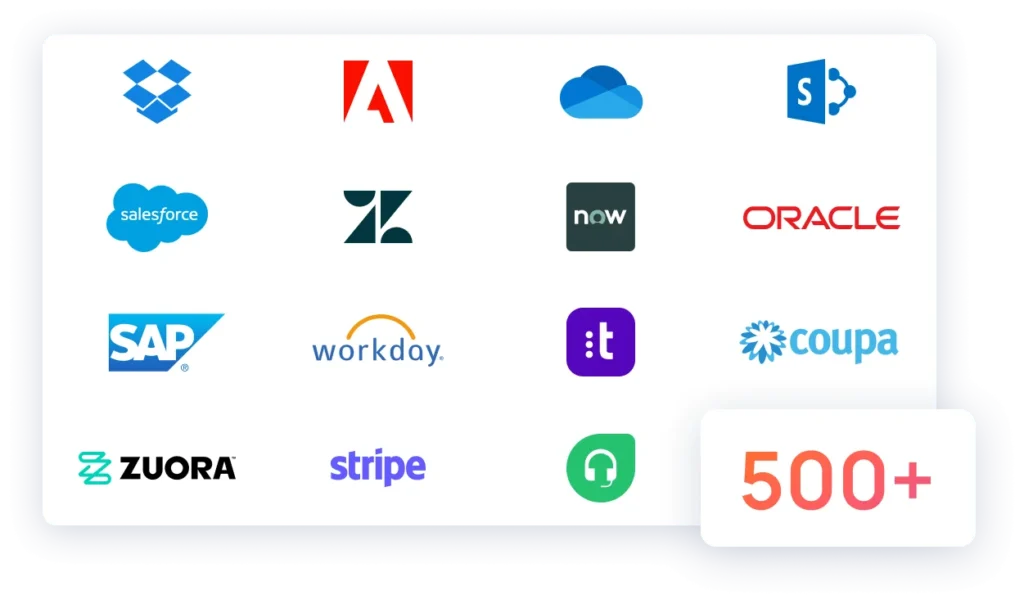
AI Voice Bot
Integrate AiseraGPT with leading IVR platforms such as Avaya, NICE in Contact, Genesys, 8×8, Cisco, and Five9. AI Voice Bot resolves contact center service requests autonomously with Aisera to offer customers an exceptional conversational journey.
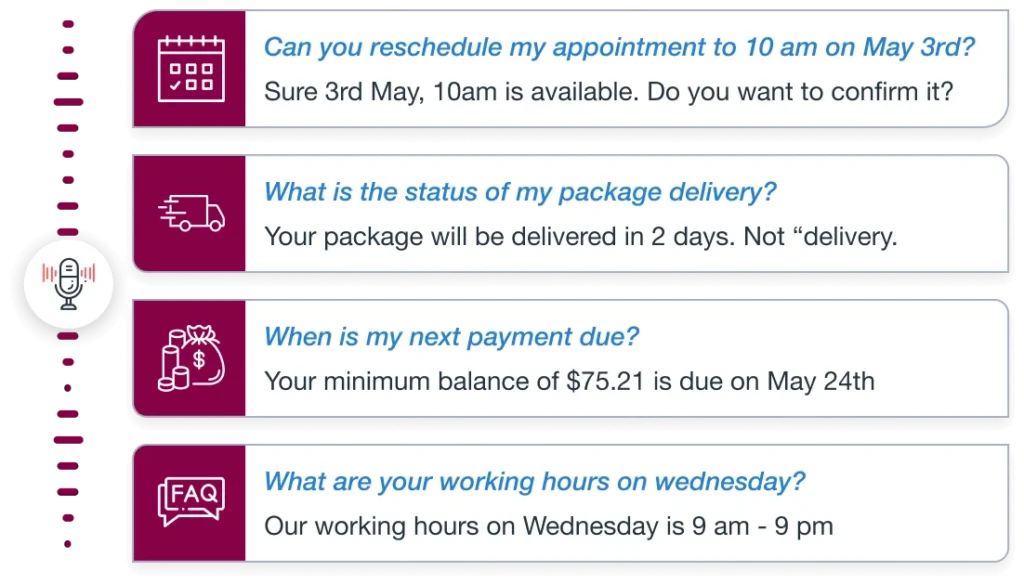
Seamless Escalation to Live Customer Agents
Automatically identify customer sentiment and smoothly transfer escalated conversations to a live agent with conversation logs. Streamline your escalation processes to improve customer satisfaction and agent productivity.
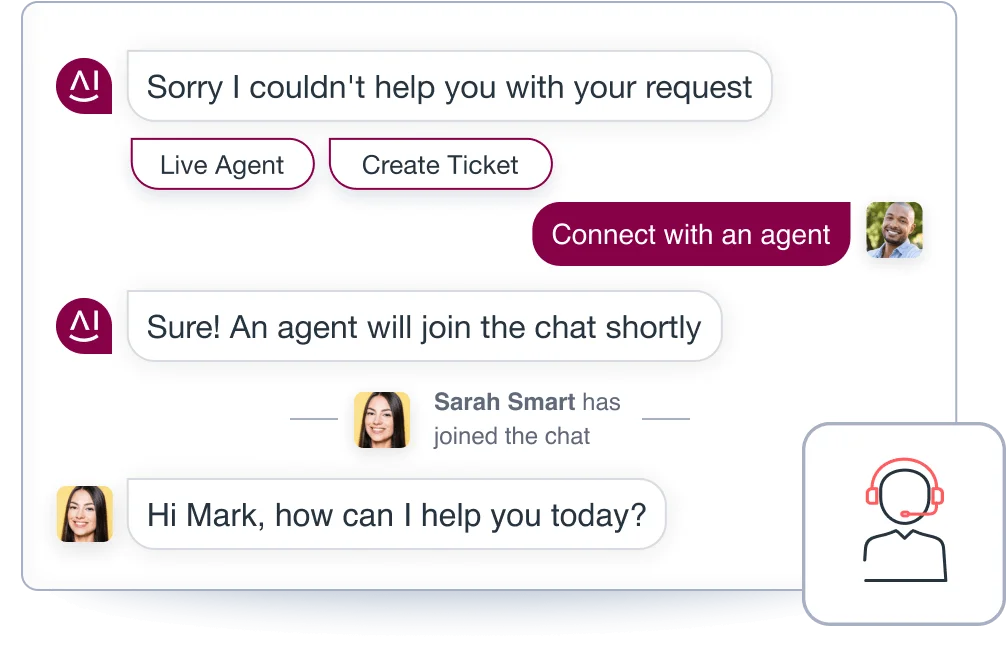
AI Customer Service Products

![]()
![]()
